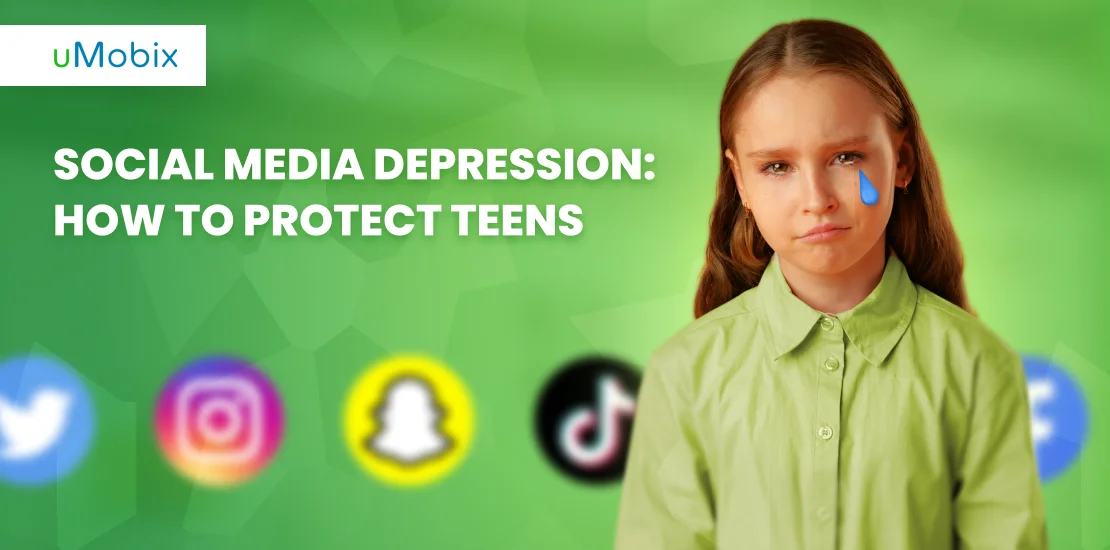What Is Sexting?
Sexting is a portmanteau word: a clever blend of the terms sex and texting into one. But what exactly is sexting?
Sexting is the sending, receiving, and group-sharing of sexually explicit texts, images, and videos of oneself, or others, via an electronic device that facilitates it: a tablet, computer, or cell phone.
The sharing of sexually explicit words and pictures is not a new phenomenon. However, the advent of the digital world has made it that much easier and more dangerous for vulnerable people, especially young children and teens.
Parents, therefore, need to be aware of the world of sexting and how it might affect them and their children.
Is Sexting Illegal?
Unfortunately, it’s not as simple as yes or no. Different countries, and even different states within a country, such as the United States, have variable laws about sexting.
Most of the sexting laws that exist address sexting involving minors to protect children or sexting as an abuse of power to manipulate, control, and harass others, such as child pornography, cyberbullying, and revenge image-sharing.
The legal age of consent adds further complications.
The legal age of consent for sexual intercourse varies according to country and state, but the legal age of consent may differ from the age at which someone may legally take part in sexting. For example, according to UK law, ‘Always remember that, while the age of consent is 16, the relevant age in relation to indecent images is 18’, as reflected in many laws across the world.
Find out more about sexting laws in the United States here.
What If There Was Consent?
New research from the University of Texas Medical Branch suggests that consensual sexting in a healthy and committed relationship could, with caution, be considered part of a teen’s normal and developmental part of exploring their sexuality.
Many parents, still uncomfortable with the advancing digital world and the behaviors that come with it, may balk at this when faced with the risks and dangers associated with sexting.
Jeff. R. Temple, however, an expert in Child and Adolescent Health, says that there is still much about sexting to be concerned about, particularly where adolescents are indulging in risky sexual behaviors or minors are involved.
Risky sexual behaviors linked to sexting include non-consensual sexting, coercion and control, and a higher incidence of multiple partners and unprotected sex.
Where a minor is involved, even consensual sexting could potentially result in child pornography or indecency charges and a criminal record.
Always remember! Sex and sexting are inextricably linked, and just as there are laws about when you can legally have sex, there are laws about when you can lawfully sext!
Whether or not the experience is consensual, it may still be breaking the law!
Find out what the legal age of consent is around the world.
What If There Was Consent, But Not to Distribute?
If a consensual sext is shared, it is not okay for the person receiving it to share the message with anyone else without further consent. However, it is not technically illegal unless a minor is involved.
However, discovering that a private message has been passed on to others or shared online will potentially cause considerable distress to the original sender.
Images, and other information, once shared, can spread rapidly and are difficult to remove permanently. Many of us are familiar with the term ‘going viral!’
On January 1st, 2015, California introduced the “Online Eraser” law which requires online service operators to delete information posted by a minor at their request. Other companies offer a similar service at a price.
In the UK, the Internet Watch Foundation and Childline offer a free tool to help with getting unwanted internet content removed.
However, there is only one way to completely guarantee that the non-consensual distribution of sexts/images is avoided, and that is for it not to be available in the first place.
Talk to your child honestly and openly from an early age about the dangers of sexting.
How Do I Talk With My Kids About Sexting?
In an ideal world, parents would proactively discuss the dangers of sexting as soon as their children had access to their own electronic devices. By the way, there are many apps providing advanced parental control for this purpose, for instance uMobix. Just browse the service.
These can be scary conversations for children, so pick a quiet moment and approach the subject calmly and sensitively.
There is a lot of helpful information on sexting to help concerned parents address a potentially divisive subject with their children, but here are a few points to help the conversation get started.
- Ensure your child knows the law around age and consent.
- Be understanding of the pressures that exist from peers and the culture of dares and challenges.
- Encourage your child to act responsibly; if something feels wrong, then it probably is.
- ‘Going viral’ is a commonly-used phrase, but the reality is, once the sext is sent, your child has no control over what happens to it.
- Develop an awareness of what a healthy online relationship is. Sexual predators can access child victims through online gaming, chat rooms, and instant messages.
- Be approachable. Make sure your child can talk to you about their concerns.
Jeff R. Temple advises parents not to ‘freak out!’ if they do find ‘dirty sexts’ on their child’s phone. Sexting among teens could be healthy sexual exploration, a study says. Reacting negatively and punitively to sexting may damage trusting parent/child relationships and shut down useful avenues for open and honest conversations on its’ risks and dangers.
Explore the reasons for the cell phone nudes and messages. Are they being harassed, threatened, or blackmailed? Are they responding to peer pressure, or are they victims of cyberbullying? Are they lacking in confidence and trying to gain someone’s approval for their appearance and body image? Is this a long-distance relationship with a desire for sex?
If parents establish no criminal element to the sexting, then use the event as a catalyst for a sensible conversation.
Worried parents might consider installing a cell phone tracker app on their children’s phones. uMobix is one of the top tracking apps of 2022, providing parents with extensive access to their children’s messages, social media accounts, location, and internet use.
How Do I Find Sexting Laws for My Jurisdiction?
There is no Federal Law in the United States that covers sexting across the country. Instead, sexting laws vary from state to state, and each state breaks down and addresses the different aspects of its’ own sexting laws.
Most international sexting laws agree that it is illegal for any child under the age of 18 to send, receive, or share sexually explicit content.
If the sexting is between non-consenting adults, other laws, such as stalking or harassment, may be applied.
Conclusion
The subject of sexting evokes a highly emotive response in parents. Thoughts of their youngsters being drawn into what is perceived as a dark and dangerous world, with potentially serious consequences, are terrifying. There is, however, plenty of practical and legal advice and guidance readily available, the most helpful being – be aware, be alert, and be open to honest discussion with your kids.
FAQ
Sexting laws apply to sending, receiving, and sharing sexually explicit texts, images, and videos of oneself, or others, via an electronic device such as a tablet, computer, or cell phone.
The age of consent is the legal age at which someone is considered mature enough to have consenting sexual intercourse. They may vary from country to country and be affected by other factors such as religion. Sexting laws protect minors, persons under the age of 18, against grooming, exploitation, and abuse by sexual predators.
Most international sexting laws agree that it is illegal for any person under the age of 18 to send, receive, or share sexually explicit content using an electronic device. However, it is worth checking the laws of individual countries, as some vary. For example, sexting is “considered as a consequential offense in India for which legal action can be imposed on the couples.”
It is illegal for any person under the age of 18 to be involved in sending, receiving, or sharing sexually explicit content using an electronic device.
Consequences of being caught sexting depend on a person’s age, the laws of the country or state in which it takes place, and whether it is entirely consensual. The consequences may involve as little like an awkward conversation with mum or dad or a full criminal prosecution.

Latest posts
- 10 Best Apps for Parents to Monitor Social Media: 2026 Guide
- Complete List of Keywords to Block for Parental Control
- Does Telegram Notify Screenshots? Everything About Screenshot Detection
- How to Find Someone’s Deleted Instagram Posts: Complete Guide
- Family Tracking App by uMobix: Keep Loved Ones Safe




